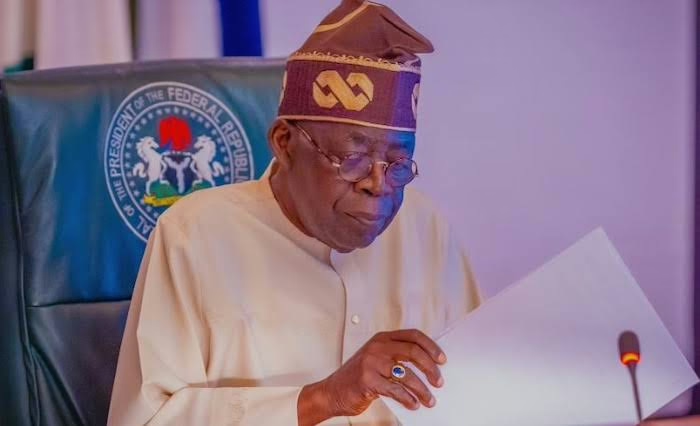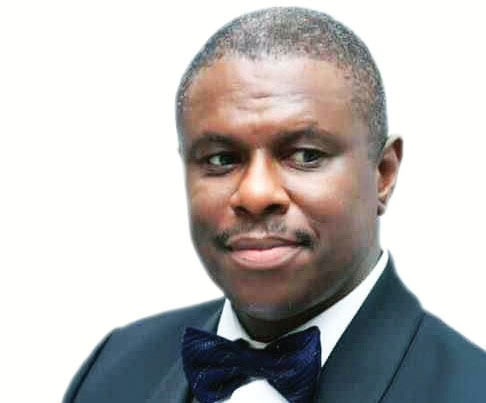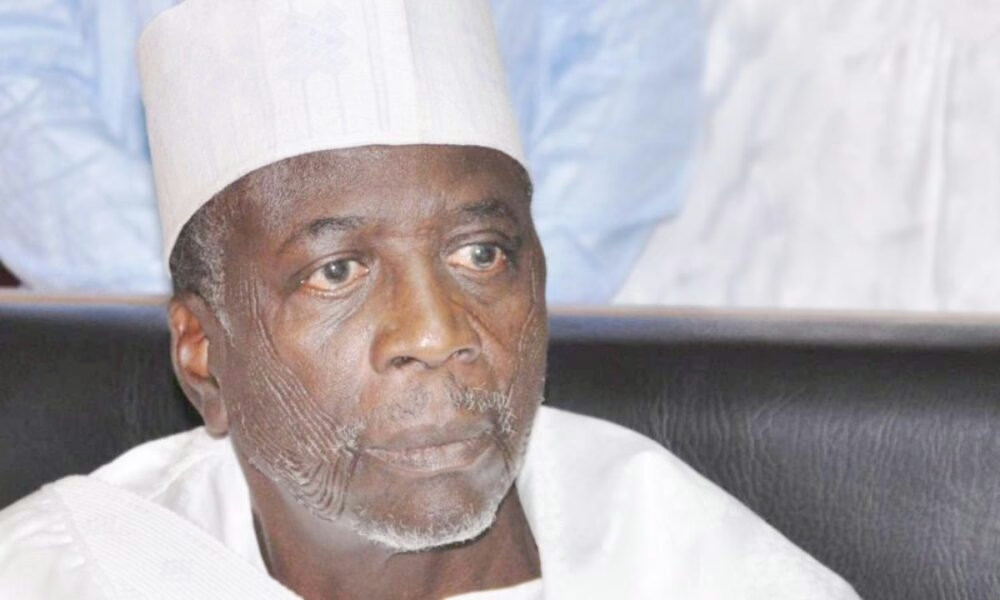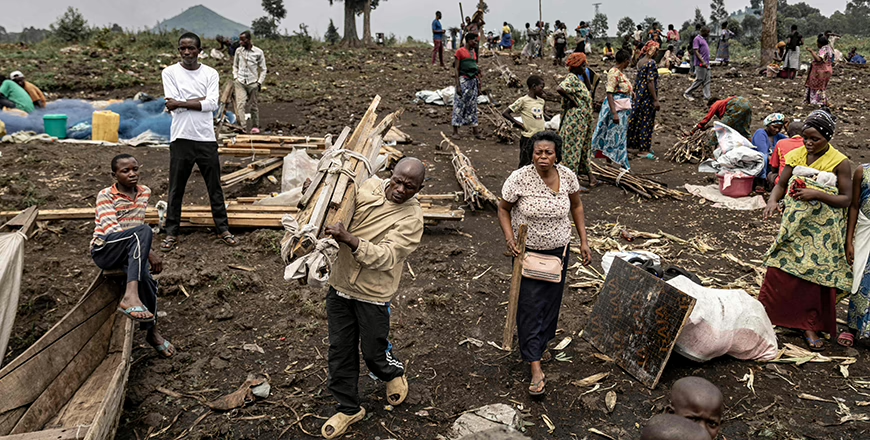The sad thing about these compromising individuals is that they may be accomplices in the perfidy without fully understanding the ramifications of their unwholesome actions.
What is even more concerning is that instead of spinning off the four state-owned refineries, which are in decrepit condition, to private sector investors, NNPCL is opting for the previously tested and failed path of concessioning government-owned assets. They are disguising this current plan to concession the Warri and Kaduna refineries as an Operation and Management (O&M) contract, much like they replaced the word “subsidy” with the term “under-recovery” to obfuscate the fact that the government has continued to pay subsidies on petrol, even after President Bola Tinubu declared, “petrol subsidy is gone” during his inaugural speech on May 29, last year.
One thing that seems to be eluding those applying the strategy of obfuscation in managing the affairs of this government is that by concealing the fact of the matter, they are hurting instead of burnishing the Tinubu brand equity, which they should be doing everything legitimate to boost.
Now that the state-owned oil firm has been compelled to admit that it has been paying subsidies after its annual report revealed it was indebted to foreign PMS suppliers to the tune of $6.8 billion, Nigerians are suffering the fallout via the excruciating pains they endure at petrol stations while trying to get petrol.
The pursuit of this unwholesome practice by government officials some of who are not encouraging the refining of petrol locally instead ensuring that Nigeria continues to import petrol from refineries set up on the coasts of European countries and other locations, such as the Island of Malta, recently revealed as the biggest source of refined petroleum imports into Nigeria (nearly $3 billion) over the past two years is unconscionable. This occurred because NNPC Ltd., the government-owned refinery, has been the sole importer of petrol into Nigeria, even though the sector was ostensibly deregulated by the passage of the PIA.
Even the channel of distribution for PMS from Dangote is currently caught up in miscommunication as multiple conflicting statements have emanated from the state owned oil company, NNPCL, and the petroleum ministry. This is despite the fact that AGO (diesel) from Dangote Refinery and related products have, since January, been distributed through multiple Nigerian firms with established footprints in that function. Why is PMS distribution caught up in another maze? Is it to sell off the recently imported Euro 2 foreign PMS, which is inferior to Dangote’s Euro 5 quality?
The lesson to be learned by those managing the government’s image and its agencies is that when one lies by using woolly words to confuse stakeholders, they should keep in mind that as the conventional wisdom goes, “Lies travel fast, but truth soon catches up.”
The Federal Government and NNPC Ltd. have now lost credibility by finally admitting they had been paying subsidies.
At a time when the masses have lost confidence in the government, communicating false information has only further damaged its reputation. Nevertheless, if the new dawn of sourcing refined petroleum products locally and making it abundantly available is well managed, the government’s tarnished reputation can be redeemed through Dangote Refinery, which is poised to have an impact similar to that of Globacom, founded by indigenous multi-billionaire entrepreneur Chief Mike Adenuga in the GSM telephony space 21 years ago. At the time, the industry was dominated by foreign firms—MTN and Econet (now Airtel).
As may be recalled, the GSM telephony pioneers in Nigeria were offering per-minute billing, which Globacom changed to per-second billing, forcing MTN and Econet to follow suit. Today, Globacom is a leading service provider competing favorably with the foreign firms that commenced telephony business in Nigeria ahead of it, which some pundits have attributed to sabotage by foreign interests working in cahoots with local civil and public servants.
Just as Globacom shifted telephone billing to per-second instead of per-minute billing, to the discomfiture of foreign firms, Dangote Refinery is offering Nigerians Euro 5 top-quality petrol and diesel, which are as light in color as water and far superior to the previously imported Euro 2 quality.
Even more inspiring is that the high quality of Dangote’s output makes European markets potential destinations, and the existence of Dangote Refinery in Nigeria is already resulting in the imminent shutdown of refineries located on Europe’s coasts, which target African markets, including Nigeria, as the main dumping ground for their lower-quality petroleum products.
In a Reuters report from March 27 earlier this year, Ahmad Ghaddar and Robert Harvey highlighted in their report, ‘Nigeria’s Dangote Oil Refinery Could Accelerate European Sectors’ Decline’, that: “As much as 300-400,000 bpd of refining capacity in Europe is at risk of closure because of rising global gasoline production.”
It is because of its worldwide acceptability owing to its high quality that Dangote Refineries boss, Mr. Davekumar Edwin, reminded the traducers of the firm that he would export his products if further stifled by Nigerian hostile business environment.
In light of this, readers can imagine what the owners of the European refineries under threat of closure could have done to stop Dangote Refinery from being successfully established—by manipulating equipment suppliers, turnaround managers, and financial institutions with foreign origins. One can also imagine what they might have done to ensure that Nigeria’s four nearly comatose government refineries remain dysfunctional, to retain the Nigerian market for their products.
A very jarring development to me on the course of the current hiatus in the oil/gas industry is the statement by Dangote Refinery boss, Mr. Davekumar Edwin: “Well, I explained how there has been a kind of a blockade from lifting our products within the country. The traders have been trying to block (it), and so now we have been exporting our petroleum products. PMS, we are ready to pump in as much as possible to the country.
“But if the traders or NNPC are not buying the product, obviously, we will end up exporting the PMS as we are doing with the aviation jet and diesel.”
Perhaps a personal business experience with Dangote Group would better illustrate how professional and clinical Chairman Aliko Dangote and his top executive, Mr. Edwin, can be.
About five years ago, SCOA Plc, a company where I served as a non-executive director and chairman of the audit committee since 2012 commenced the assemblage of M.A.N trucks in Nigeria.
We targeted selling our locally assembled trucks to Dangote Group, which had about 5,000 trucks in its fleet to distribute the numerous products in which she is a market leader.
So I secured an appointment for SCOA comprising of the GMD, Dr. Massad Boulos, and myself alongside three executives from M.A.N trucks manufacturers from Germany to meet with Alh. Dangote in company of Mr. Edwin in Dangote corporate headquarters in Ikoyi, Lagos.
After the detailed presentation by the Germans, Chairman Dangote asked them for the price of the truck. At that time, it was N12 million. He contrasted the cost of the Chinese alternative which was only N3 million and which was already being successfully used to convey cement from Ibese in Kogi State to Port Harcourt and other locations in the South-East and South-South.
Being a pragmatic business man that Chairman Dangote is, although M.A.N truck, the European brand would last longer than the Chinese brand, his decision when it was eventually conveyed to me was that he would stick to his Chinese brand whose price was only a quarter of the price of the European brand.
I shared my experience with the Chairman Dangote Group as detailed above in company of the vice president of the group to illustrate how calculated Alh. Dangote and his executive, Mr. Edwin, can be in decision making which underscores my concern that Dangote Refinery can actually carry out its alternative plan to export her refined petroleum products out of Nigeria if the need arises.
This clearly shows the difference between Dangote Group, the shrewd business conglomerate and Dangote Foundation, the philanthropic organization sharing one million bags of rice amongst indigent Nigerians nationwide. So if Nigerians are waiting for cheap petrol from Dangote Refinery, they may be waiting for the proverbial Goddot.
That said let’s now focus on the telecommunications sector.
We are all familiar with the torturous path that Chief Adenuga navigated in founding Globacom. The Nigerian Communications Commission (NCC) failed to issue him a GSM license after he won the bid for one of the licenses, while two foreign-origin firms—MTN from South Africa and Econet from Zimbabwe—received theirs. The denial of a license to Globacom was based on the flimsy excuse that the investor failed to complete payment before the deadline, causing him a loss of a whopping $20 million that he had deposited.
Again, as with Dangote Refinery, where public servants tried to undermine the process, was it not unpatriotic civil servants who similarly failed to ensure that the GSM spectrum on sale to Globacom was unencumbered? Either by omission or commission, the bureaucrats failed to ensure that the spectrum offered was free of litigation. Upon discovery, Globacom withheld payment.
How could Chief Adenuga have paid for a spectrum that had a previous owner who was in court with the regulatory authority, NCC? If the Globacom founder had not been a tenacious fighter and had given up after losing his initial deposit of $20 million, perhaps we would not have an indigenous player in the GSM space, and per-second billing for services might have remained a mirage. It is also a testament to Chief Adenuga’s perseverance that Nigeria has a multinational GSM service provider competing favorably in Nigeria and serving other African nations.
Presently, Glo, as it is commonly referred to, operates in four countries:
(1) Nigeria
(2) Ghana
(3) Benin Republic
(4) Senegal
Thus, it is effectively a West African telecommunications company providing mobile network services, including voice, data, and broadband solutions, to individuals and businesses in these countries.
Arising from the above, an industry that was previously a net exporter of wealth (with only foreign firms as service providers) now has Globacom as a contributor to Nigeria’s foreign exchange income, by virtue of being a recipient of foreign capital inflow through its African footprint.
In a similar vein, Air Peace, a local airline owned by Barrister Allen Onyema, is making waves in the aviation sector by operating under the Nigerian pact with other countries, including the United Kingdom (UK), through the Bilateral Air Service Agreement (BASA). This agreement, based on reciprocity, dictates the number of flights allowed into a partner’s country. It was previously monopolized by UK airlines—British Airways and Virgin Atlantic—after the demise of Nigeria Airways.
Commendably, Air Peace has recently stepped up to fill the void left by Nigeria Airways’ shutdown. It is hypocritical, appalling, and oppressive that Air Peace was denied landing rights at London Heathrow Airport and confined to Gatwick Airport, despite the fact that British Airways and Virgin Atlantic land at multiple first-rate airports and cities in Nigeria—Lagos, Abuja, and Port Harcourt.
Even worse, British aviation authorities resorted to nitpicking, subjecting Air Peace to undue scrutiny. This underhanded tactic was cheered by some Nigerians rather than demanding reciprocity in the same manner that British carriers fly into multiple airports in Nigeria.
Despite these obstacles, and quite impressively, since Air Peace began operating flights into London, a route previously monopolized by UK airlines, the cost of fares has significantly decreased. The waiting list for travelers booked to fly with the airline to the UK can now be as long as three months (90 days). This bold initiative has not only been a game-changer but has also saved Nigeria foreign exchange (FX) that would have otherwise been sent to Europe through the UK airlines’ monopoly, which had arbitrarily charged Nigerian passengers higher fares. At one point, foreign airlines even compelled Nigerians to pay airfares in pounds sterling and dollars.
As a result, undue pressure was mounted on the naira, contributing to the prevailing poor performance of the Nigerian currency against foreign currencies, as reflected in the current astronomical FX exchange rate, which is now in excess of N1600/$1.
It is not a mere coincidence that these three indigenous firms, which are breaking the monopoly of foreign-owned corporations in the oil/gas, telephony, and aviation sectors, were singled out for recognition during the launch of my book, ‘Leading From The Streets: Media Interventions By A Public Intellectual 1999–2019’, at Alliance Francaise/Mike Adenuga Centre in Ikoyi, Lagos, on May 8, just about five months ago.
We did that after thorough research and discovered that these iconic firms stood out as national brands driven by visionary entrepreneurs who are leading from the streets—people outside the orbit of government making positive impacts on society.
Significantly, in a country plagued by ethnic nationalism that requires balancing opportunities among the three main tribes of Yoruba, Igbo, and Hausa/Fulani, the three firms identified are founded and driven by entrepreneurs from these respective ethnic groups-Hausa/Fulani, Yoruba and Igbo.
What underscores the kernel of this essay is that since the entrepreneurs who founded these remarkable firms have succeeded in building and elevating them into national icons through sheer business acumen and entrepreneurial ingenuity, it behooves the Federal Government to give them the necessary support to transition from national brands into global icons. Doing so would not only create employment for Nigerians at home but also generate foreign exchange, using South Korea as a model.
We found a correlation between what had happened to hinder the growth and shackle the three sectors, which the three identified firms and individuals defied, hence we honored them. What may not be obvious to most Nigerians is that the challenges that they were confronted with are the driving force behind the lack of industrialization in our country and, by extension, our continent.
These challenges are not obvious to a majority of us as they are often subtle and sometimes manifest as brazen sabotage by foreign firms in cahoots with local actors who seek to line their pockets with filthy lucre at the expense of national interest. These local actors are embedded in strategic government agencies such as NNPC Ltd, the Nigerian Communications Commission (NCC), and the Federal Aviation Authority of Nigeria (FAAN).
To drive home the point about how our country can adopt a different and proven industrialization paradigm, we need to examine the pathway adopted by South Korea, which enabled it to transition into the first world. By comparing South Korea’s economy, currently ranked 14th among the largest economies in 2024, with a population of a mere 51 million in 2022, to Nigeria’s economy, with over 200 million people and ranked 53rd in the world, it becomes clear that we have much to learn from Korea. Especially because both countries were at the same development stage in the 1960s before South Korea surged ahead.
The secret of South Korea’s economic success cannot be told without emphasizing the role played by ‘chaebols’ in elevating South Korean businesses to global status. Companies like Daewoo, Samsung, LG, and Hyundai would not have become household names worldwide if the ‘chaebol’ concept had not been adopted by visionary Korean leader, Mr. Park Chung-Hee, who transformed the country in the 1960s.
A deep dive into how Nigeria can follow the same industrialization path that South Korea took when it introduced ‘chaebols’ at a similar development stage will be helpful. So, it is appropriate to put things into context.
To better understand, it is crucial to first define ‘chaebols’. Essentially, ‘chaebols’ are large family-owned business conglomerates in South Korea, often compared to Japanese ‘keiretsu’ or U.S. conglomerates. The term “chaebol” is derived from the Korean words “chae,” meaning “wealth” or “property,” and “bol,” meaning “clan” or “family.”
It is important to note that the concept of ‘chaebols’ in Korea was introduced by the government, specifically by President Park Chung-Hee, who ruled South Korea from 1961 to 1979. His government actively promoted the development of ‘chaebols’ as a key strategy for rapid economic growth and industrialization.
Given the success of this idea, which facilitated South Korea’s rapid industrialization in the 1960s, it is recommended for adaptation in Nigeria, which is at a similar development stage and needs to think outside the box to leapfrog from a third-world economy to a first-world economy, much like Singapore successfully did.
From historical records, President Park’s government took the following strategic steps:
(A) Identified key industries and selected strategic sectors such as textiles, steel, and electronics for targeted support.
(B) Provided financial, tax, and regulatory incentives to encourage entrepreneurship and investment in these industries.
(C) Fostered close relationships with entrepreneurs and family-owned businesses, offering guidance, protection, and resources.
President Park initiated these actions because he viewed ‘chaebols’ as a way to drive economic growth, industrialize and modernize the economy, promote exports, and earn foreign currency. It was also expected to reduce dependence on foreign capital and minimize reliance on foreign investment and loans.
If Nigeria’s current economic situation is juxtaposed with that of South Korea when ‘chaebols’ were leveraged, it becomes clear that Nigeria is at a similar socioeconomic crossroads and needs to adopt the Korean strategy. In the same way that government support helped ‘chaebols’ grow rapidly and become a cornerstone of South Korea’s economic development, Nigeria’s national brands—Dangote Refinery, Globacom, and Air Peace—should be supported to become global icons.
Here are some key characteristics and facts about ‘chaebols’:
Advertisement
- They are typically owned and controlled by a single family or a small group of families.
- ‘Chaebols’ often have a wide range of business interests, including manufacturing, construction, finance, and services.
- They have historically had close relationships with the government, which has provided support and protection.
- ‘Chaebols’ have a high degree of vertical integration, controlling multiple stages of production and supply chains.
- Many ‘chaebols’ have expanded globally, with operations and subsidiaries around the world.
Isn’t it amazing that all of these characteristics are associated with the Nigerian brands being recommended for elevation into ‘chaebol’ status by the Nigerian government?
Below are some well-known ‘chaebols’ from South Korea: - Samsung Group
- Hyundai Motor Group
- LG Group
However, this close relationship between government and business often common with ‘chaebols’ has led to criticisms of crony capitalism, corruption, and unequal opportunities for smaller businesses. While ‘chaebols’ have played a significant role in South Korea’s rapid economic growth and industrialization, they have also faced criticism for nepotism, stifling competition, and inhibiting innovation.
Overall, ‘chaebols’ remain a dominant force in the South Korean economy, despite facing increasing scrutiny and calls for reform.
With respect to Nigeria, where the government has historically been at the commanding heights of the economy, government monopoly has always hindered economic development. Transitioning from government monopoly to private-sector-led development/monopoly, as ‘chaebols’ demonstrate, is a better option. This is evidenced by how the success of ‘chaebols’ enabled South Korea to transition from a developing nation, like Nigeria in the 1960s, to one of the Asian Tigers—a status many developing countries are currently aspiring to achieve/attain.
Having tried the well beaten paths sometimes routed in Western dogma to pull our country and by extension our continent out of stagnated development, it is perhaps time to try the proven Asian paradigm for change via adoption of ‘chaebols’ methodology to industrialization and having presence in the global stage as exporter of finished products instead of mere source of raw materials and market for the industrialized world’s myriads of products which we should produce in country and on the continent.











